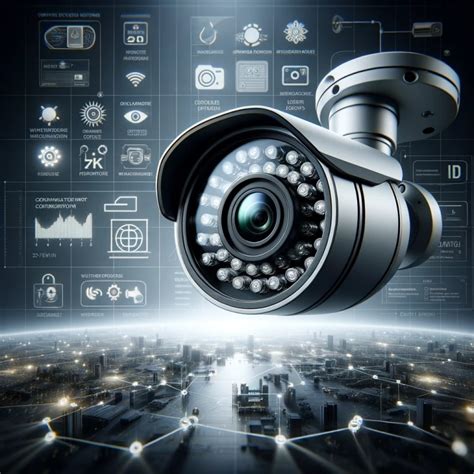Digital Video Recorders (DVRs) have become an essential part of our home security systems, allowing us to record and store video footage for later viewing. However, with so many DVR options available on the market, it can be overwhelming to choose the right one for your needs. That's why it's crucial to understand the key DVR tech specs that will impact your device's performance and functionality.
In this article, we'll delve into the 10 essential DVR tech specs you need to know before making a purchase. We'll explore what each spec means, why it's important, and how it will affect your DVR's overall performance.
What is a DVR, and How Does it Work?
Before we dive into the tech specs, let's briefly explain what a DVR is and how it works. A DVR is an electronic device that records video footage from one or more cameras and stores it on a hard drive or solid-state drive (SSD). DVRs are commonly used in home security systems, but they can also be used in other applications, such as surveillance systems for businesses or public spaces.
1. Resolution

Resolution refers to the number of pixels that make up the video image. A higher resolution means a clearer and more detailed image. When it comes to DVRs, resolution is typically measured in pixels (e.g., 720p, 1080p, 4K). Look for a DVR with a high resolution to ensure that your video footage is clear and detailed.
2. Frame Rate

Frame rate refers to the number of frames per second (fps) that the DVR can record. A higher frame rate means a smoother and more realistic video playback. For most applications, a frame rate of 30 fps is sufficient, but if you need to capture fast-moving objects, look for a DVR with a higher frame rate.
3. Storage Capacity

Storage capacity refers to the amount of space available on the DVR's hard drive or SSD to store recorded video footage. Look for a DVR with a large storage capacity to ensure that you can store multiple days or weeks of footage.
4. Number of Channels

The number of channels refers to the number of cameras that the DVR can support. If you have multiple cameras, look for a DVR with multiple channels to ensure that you can connect all of your cameras to the device.
5. Video Compression

Video compression refers to the method used to reduce the file size of the recorded video footage. Look for a DVR with a compression algorithm that balances file size with video quality, such as H.264 or H.265.
6. Network Connectivity

Network connectivity refers to the DVR's ability to connect to a network, such as the internet or a local area network (LAN). Look for a DVR with network connectivity options, such as Ethernet or Wi-Fi, to enable remote viewing and management.
7. Power Over Ethernet (PoE)

Power over Ethernet (PoE) refers to the ability of the DVR to power cameras over the Ethernet cable. Look for a DVR with PoE to simplify camera installation and reduce the need for separate power cables.
8. Motion Detection

Motion detection refers to the DVR's ability to detect motion in the video footage and alert the user. Look for a DVR with motion detection to enable alerts and reduce unnecessary recording.
9. Weather Resistance

Weather resistance refers to the DVR's ability to withstand outdoor weather conditions, such as rain, snow, and extreme temperatures. Look for a DVR with weather resistance if you plan to install cameras outdoors.
10. Warranty and Support

Warranty and support refer to the manufacturer's commitment to providing assistance and repairs in case of defects or issues. Look for a DVR with a comprehensive warranty and support program to ensure that you're protected in case something goes wrong.
By understanding these 10 essential DVR tech specs, you'll be able to make an informed decision when choosing a DVR for your home security system. Remember to prioritize the specs that matter most to you, such as resolution, storage capacity, and network connectivity.
Gallery of DVR Tech Specs





FAQs
What is the best DVR resolution for home security?
+The best DVR resolution for home security is 1080p or higher. This will provide clear and detailed video footage, making it easier to identify individuals and objects.
How much storage capacity do I need for my DVR?
+The storage capacity you need will depend on the number of cameras, resolution, and frame rate. A general rule of thumb is to have at least 1TB of storage capacity for a single camera.
What is the difference between H.264 and H.265 video compression?
+H.265 is a more efficient video compression algorithm than H.264, providing better video quality at lower file sizes.
By now, you should have a good understanding of the essential DVR tech specs to consider when choosing a DVR for your home security system. Remember to prioritize the specs that matter most to you, and don't hesitate to reach out if you have any further questions or concerns.
